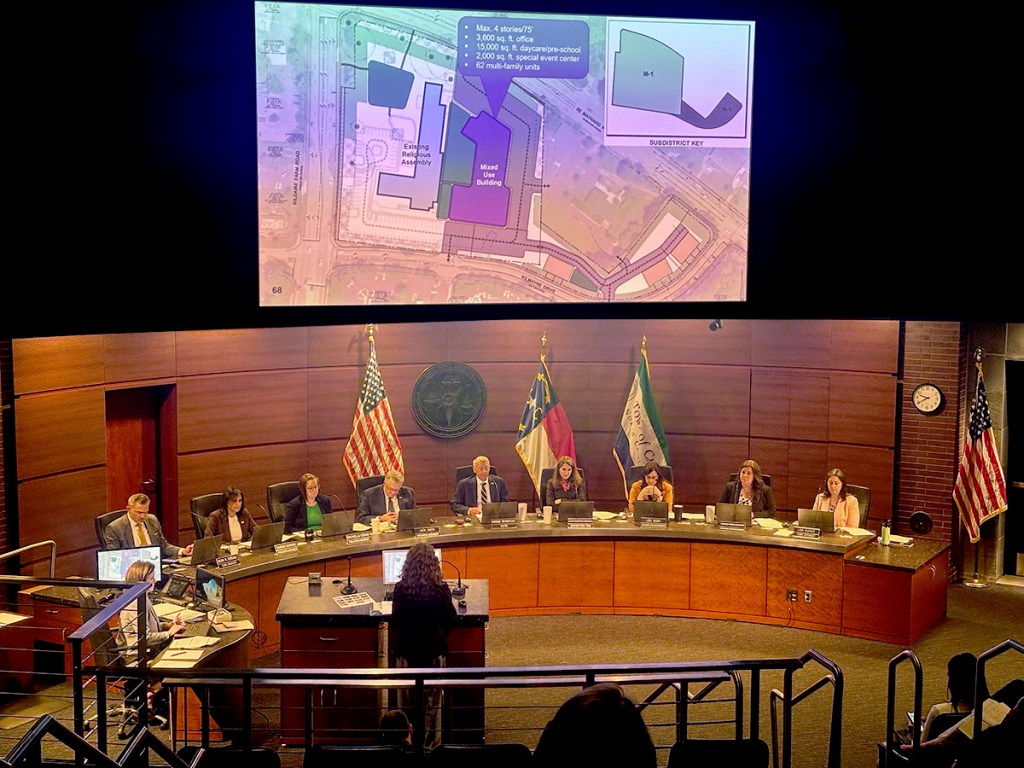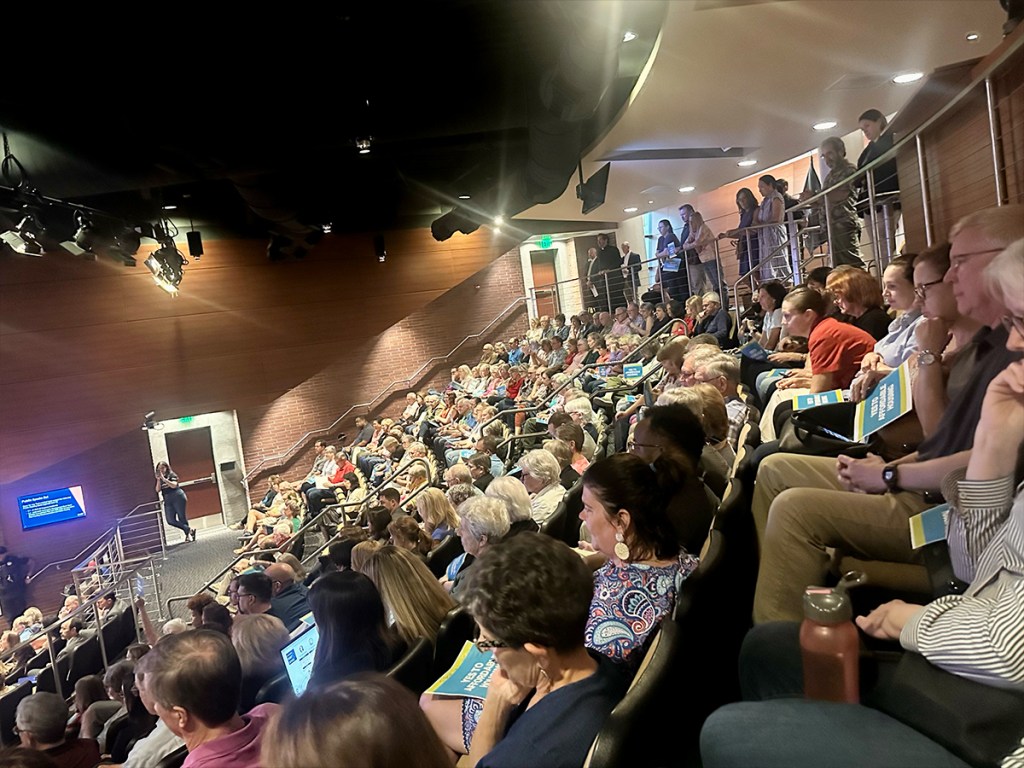On Thursday night, the Cary Town Council unanimously approved a rezoning application from Greenwood Forest Baptist Church that paves the way for it to build 62 affordable housing units on the church’s property.
The Carr Center, as the building will be called, is a partnership between the church, the housing nonprofit the Carying Place, and the nonprofit housing developer DHIC. The ground floor will house the Greenwood Forest Children’s Center for early childhood education, offices for the Carying Place, and an offshoot of the local YMCA. The upper floors will be affordable apartments for households making 30 to 60 percent of area median income (when rented) or up to 80 percent of AMI (when purchased). Eleven units will be reserved as transitional housing for families experiencing homelessness.
The church will demolish an underused part of its sanctuary to make room for the new building.
“We wanted to figure out how that could become a community asset, rather than something that was sitting empty,” explains Wesley Spears-Newsome, associate pastor at Greenwood Forest Baptist.
“We talked to dozens of partners around Wake County, around the state, some even around the country, and asked them, ‘What should we do?’ And everybody that we talked to, regardless of their focus, said if you have land, you need to build housing.”
Nothing quite like the Carr Center currently exists in Cary or Wake County. The church drew inspiration from the Southeast Raleigh Beacon affordable housing community—a mixed-use development that houses an elementary school, the Southeast Raleigh YMCA, and a Self-Help Credit Union branch, in addition to housing—and churches in Virginia, Texas, and California that have built housing on their land.
“I would characterize what we’re doing as part of a movement that’s arisen in the past several years of ‘yes, in God’s backyard,’ kind of a response to the ‘not in my backyard’ ideology,” Spears-Newsome says. “We believe that when churches have something that everyone else needs, it needs to be shared. And right now that’s land.”

Wake County has an affordable housing deficit of 65,000 units as of 2023. A recent report projects that the county will need to add more than 100,000 affordable and market-rate homes by 2029 to meet demand.
“We would encourage every congregation of whatever denomination or religious tradition to consider, if they have land, could they build housing?” Spears-Newsome says.
On Thursday, Cary’s town council applauded Greenwood Forest Baptist for its “visionary,” “slam dunk” proposal. After years of discussion and planning, it took the council members about 15 minutes to unanimously approve the rezoning request.
It was a refreshing pivot after nearly three hours of public comments from Cary residents voicing overwhelming opposition to two other proposed developments, Waverly Place and Regency Multifamily. Each would add hundreds of apartments to the town’s housing stock. Residents complained that the added density would harm their quality of life, hurt their property values, and make them feel unsafe in their neighborhoods.
Opposition to the Regency Multifamily proposal, which would rezone a tract of land near Koka Booth Amphitheater from office to multifamily use and add 245 apartments, was especially virulent. The developer included a condition that 5 percent of the units be priced for people earning 80 percent of Cary’s area median income, which is about $100,000, according to Cary mayor Harold Weinbrecht. (Thursday’s public hearing on the proposal was part of a multistep rezoning process. The council won’t vote on it for several months.)
One neighbor said she’d be afraid of someone “approaching” or “assaulting” her during her evening walks if those “affordable” units get built. Another said he doesn’t want Cary to turn into “Jersey City” or “East LA.”

The town council members largely validated residents’ concerns about growth, albeit without such an overt fear factor. Some suggested the Koka Booth area needs food and drink options more than it needs new housing. Others took issue with the limited affordability conditions. By the end of their discussion, most of the members seemed prepared to nix the Regency Multifamily proposal and “wait for something that really serves this community.”
“We can’t just plop apartments anywhere,” council member Carissa Kohn-Johnson said in response to neighbors’ concerns about traffic and overcrowding. “I don’t feel like this is the right spot.”
It was a far cry from the discussions of a “moral imperative” to provide housing that accompanied the Carr Center proposal.
Support independent local journalism. Join the INDY Press Club to help us keep fearless watchdog reporting and essential arts and culture coverage viable in the Triangle.
Chloe Courtney Bohl is a corps member for Report for America. Reach her at [email protected]. Comment on this story at [email protected].
